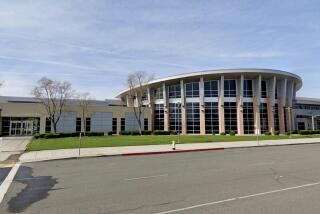Pilot Screamed ‘Oh . . . Flaps,’ Suit Claims
- Share via
PHOENIX — The pilot of Northwest Airlines Flight 255 screamed a reference to his plane’s wing flaps just before the plane crashed last month, a lawsuit says, citing previously unreported data from the cockpit voice recorder.
The pilot screamed, “Oh (expletive) flaps!” while the McDonnell Douglas MD-80 nose-dived shortly after taking off from Detroit on Aug. 16, according to the suit filed last week in federal court.
Investigators believe that the flaps were not set in the proper position to provide extra lift during takeoff. The crash killed 156 people. Cecilia Cichan, 4, was the only survivor.
The suit was the first indication of the pilot’s final words or that he was aware of the flaps problem.
Phoenix attorney Charles M. Brewer, who filed the suit against Northwest, refused to say how he had learned about the pilot’s words, as picked up on the cockpit voice recorder. “I’m a jet pilot myself, and we have our sources,” he said.
Federal investigators had said the recorder indicated that the crew members did not mention flap settings, as required, while reading their preflight checklist before taking off.
The suit was filed on behalf of the two children of Linda Grigg, a passenger. The suit, filed by Grigg’s parents, seeks $13.85 million in damages for each child, and Grigg’s parents are asking for an unspecified amount.
The suit charges that the flight crew did not follow the mandatory checklist before takeoff. It says also that a circuit breaker was circumvented, disconnecting an alarm that would have warned that the flaps and slats were not set properly.
As a result, the complaint says, the pilots never realized the flaps and slats were not extended until a second before the crash.
Douglas Aircraft Co., manufacturer of the MD-80 plane, advised pilots of other MD-80s on Tuesday to test the cockpit warning systems before taking off. Northwest spokesman Robert Gibbons said pilots check the takeoff warning system when they take command of an aircraft, but not before every takeoff.
“We are adopting that change for every takeoff on every plane,” Gibbons said.
More to Read
Inside the business of entertainment
The Wide Shot brings you news, analysis and insights on everything from streaming wars to production — and what it all means for the future.
You may occasionally receive promotional content from the Los Angeles Times.










